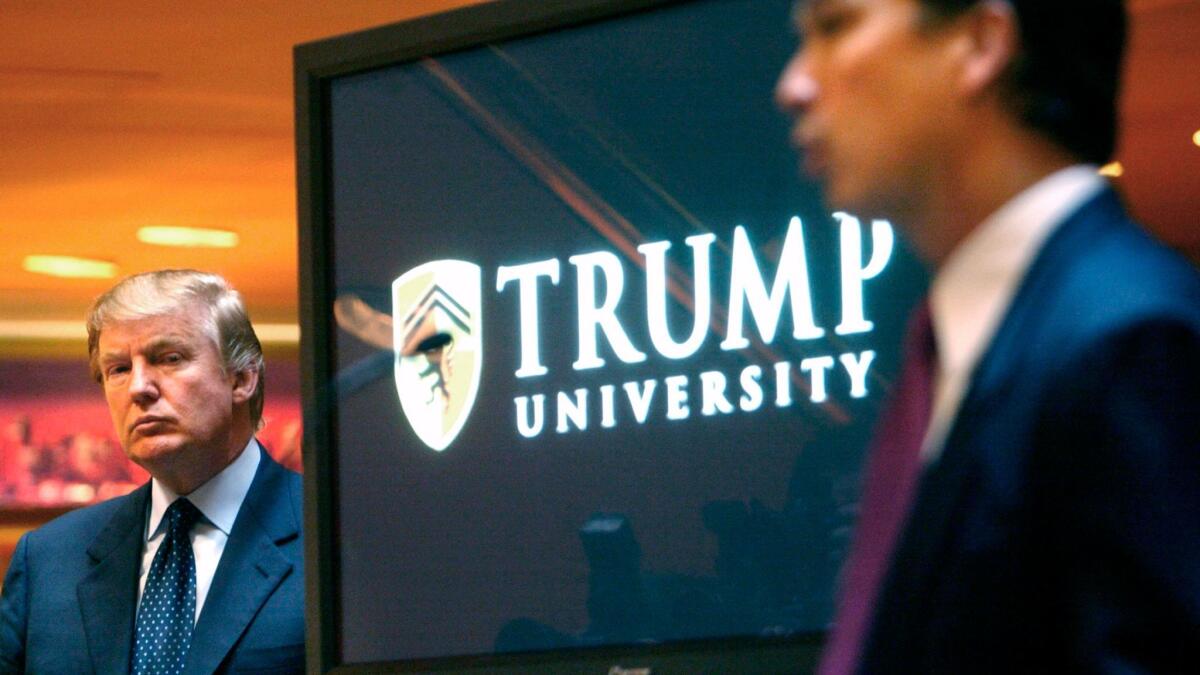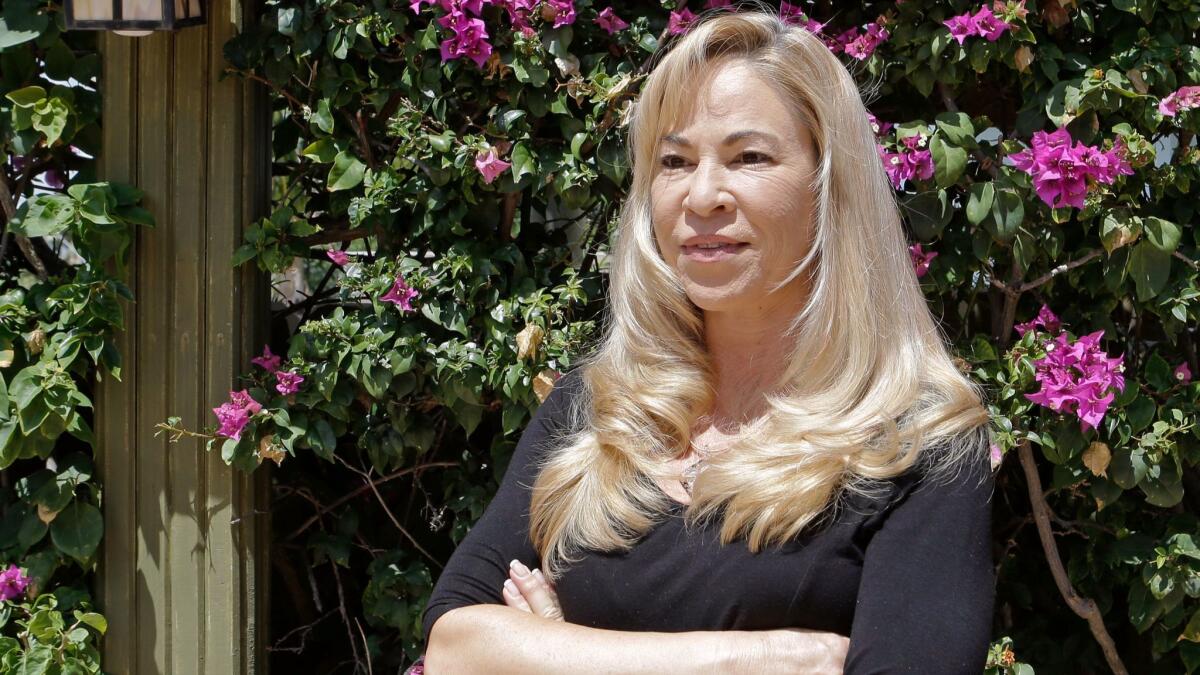Appeals court weighs whether to reject Trump University settlement so former student can take the president to trial

- Share via
A federal appeals court appeared reluctant Wednesday to scuttle a Trump University settlement so that a former student may try to take the president to trial.
The $25-million settlement, reached days after President Trump’s election, stemmed from lawsuits alleging that Trump engaged in fraud by inducing people to sign up for worthless real estate classes.
During a hearing, a lawyer for former student Sherri B. Simpson, a Florida lawyer, argued that she remained a plaintiff in a class-action lawsuit because of a promise in legal documents that she could later decide to opt out.
When the case was settled, Simpson was told she had missed her opportunity. She appealed to the 9th Circuit.
Judge Andrew D. Hurwitz, an Obama administration appointee, said during Wednesday’s hearing that the $25 million Trump agreed to pay “looks like a heck of a good settlement” and expressed concern about unraveling “a settlement that is fair for thousands of people.”
“That is what troubles me,” he said.

Hurwitz also rejected Simpson’s argument that the failure to give her a second chance to opt out violated her constitutional due process rights, though Hurwitz added that Simpson might have a “contractual” right to sue as an individual.
Judge Jacqueline Nguyen, another Obama appointee, questioned whether Simpson had legal standing to appeal.
“Don’t you have a problem here in terms of actual injury?” she asked.
Deepak Gupta, representing Simpson, said the settlement deprived her of the right to hold Trump and Trump University liable for substantially more money and to achieve “public accountability.”
David Lee Kirman, representing the now-defunct Trump University, argued that U.S. District Judge Gonzalo P. Curiel, who presided over the case, did an expert job of administering it.
“So your client’s view of Judge Curiel has changed?” asked Hurwitz.
Laughter erupted, and after a brief hesitation, Kirman replied, “Yes.”
During his campaign for president, Trump accused Curiel of being biased because he was “Mexican.” Curiel actually was born in Indiana to Mexican immigrants.
Trump agreed to pay the settlement without admitting wrongdoing.
The lawsuits alleged that Trump defrauded students into believing that they would learn his real estate secrets from professors he “hand picked.”
The students said they learned little at the now-defunct university and were barraged with hard-sell tactics urging them to spend thousands of dollars on classes.
Simpson said she remained in the class-action case because of a clause in a notice sent to members in 2015 that said they would have another, later chance to opt out.
Gupta argued the wording of the clause was standard and had been interpreted in other cases as meaning the plaintiffs would be given another opportunity to drop out and file their own lawsuits.
Hurwitz, though, called the the wording in the clause “ambiguous.”
A ruling could take several weeks or months.
Twitter: @mauradolan
More to Read
Sign up for Essential California
The most important California stories and recommendations in your inbox every morning.
You may occasionally receive promotional content from the Los Angeles Times.














